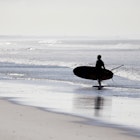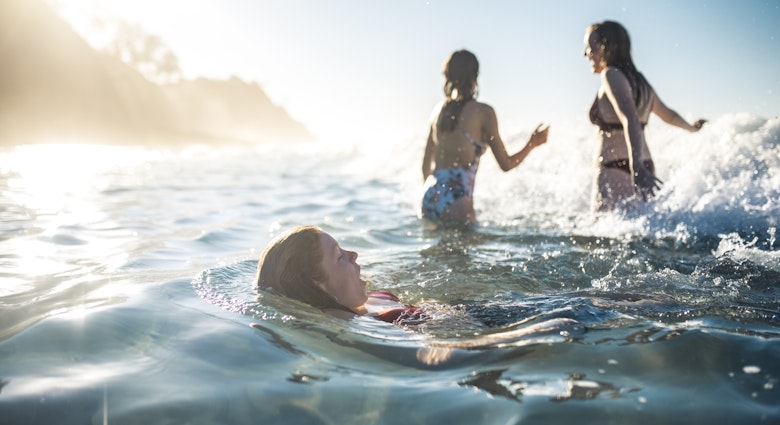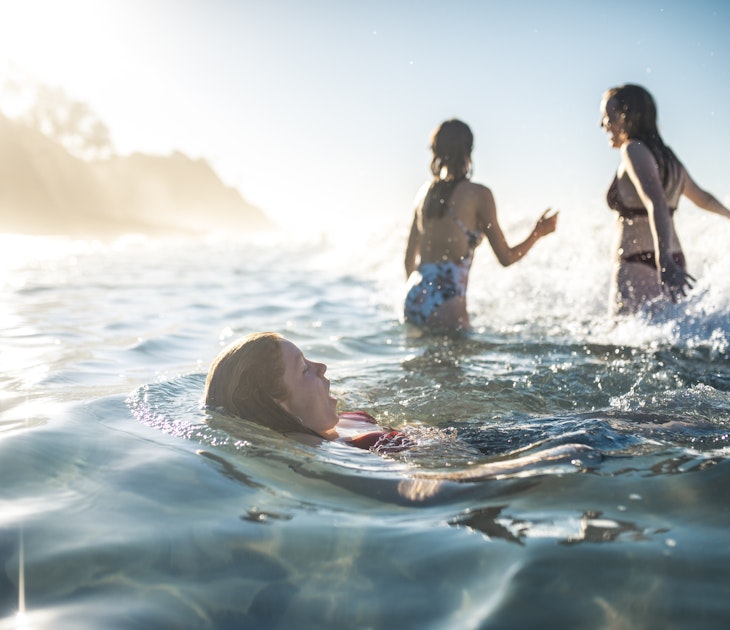

Just off the coast of Byron Bay, there's plenty to explore on land after a visit to Julian Rocks. Kyle Taylor / 500px
Whether youтre the type to throw on a tank and go deep, or prefer pottering along the surface with a snorkel, Australia is undeniably gracious when it comes to underwater life and color. Here are the best places to dive in and get wet down under.
1. The Great Barrier Reef, Queensland
As one of the seven natural wonders of the world, the Great Barrier Reef is one of the best places on Earth to go diving and snorkeling.
While climate change has stressed the ecosystem, as it has in many parts of the world, this underwater beauty is resilient and extensive rehabilitation programs are helping ensure the reefтs health т and in turn, its beauty т is maintained. And given the reef covers a whopping 2300km, there are plenty of sites to glide through a kaleidoscope of color and seek out Nemo.

Read more: The Great Barrier Reef is getting an underwater museum
Off the coast of Port Douglas, visit Low Isles т a four-acre coral cay surrounded by 55 acres of reef т or head further south down the Queensland coast to the Whitsundays, where 74 white-sand islands are surrounded by brilliant turquoise water.
Alternatively, head to Green Island (off Cairns) to find a rainforest in the middle of the reef (if that doesnтt say tropical paradise, weтre not sure what does) or Fitzroy Island, where you can swim alongside majestic green sea turtles. Fitzroy also has a turtle rehabilitation center, where you can see turtles recovering from injury or illness up close and learn about their care and release.
Youтre in for a unique treat if you time your visit to the Great Barrier Reef with a coral-spawning event in late spring or early summer. This is essentially when the coral gets jiggy and releases clouds of egg and sperm bundles for fertilization. During this time, itтs like diving inside a giant snow globe.
Read more: How to have a sustainable visit to the Great Barrier Reef
2. Julian Rocks, New South Wales
Julian Rocks is the place for shark enthusiasts. The idea of crossing paths with these toothy fish may unsettle some, but those in the know understand that the siteтs winter-loving grey nurse sharks and summer-loving leopard sharks are oft-misunderstood and typically timid, so fear not. Further, the convergence of warm and cool waters in these parts т and the associated convergence of marine life т makes for some of the best diving and snorkeling in Australia.
Novice divers and snorkelers can dip and dive in the sheltered Nursery, where a rainbow-mix of fish and multiple turtle species live, while experienced divers can venture to the Cod Hole т an underwater cave that provides a haven for the endangered grey nurse sharks, along with wobbegongs and moray eels. Rays are a common sight year-round.
Julian Rocks is located just off the coast of Byron Bay, so once you hang up your fins, enjoy a cocktail with a side of live music in one of Australiaтs coolest beach towns.
Read more: 10 reasons you'll love Byron Bay

3. Ningaloo Reef, Western Australia
At 260kms long, Ningaloo Marine Park forms Australiaтs second-largest coral reef, and is also home to the worldтs largest fringing reef. These credentials feed Ningalooтs popularity as a snorkeling and diving spot, along with its reputation for being one of the best places in the world to swim alongside whale sharks т the biggest fish in the sea. These gentle giants congregate in record numbers off the coast of Exmouth from April to July. This season tag-teams the humpback whale migration along the coast of Western Australia from July to October, when visitors can opt to jump in with the monstrous mammals. Strict laws ensure the protection of the whales by mandating the number of guests allowed in the water at one time and the distance between swimmers and marine life.
Thereтs a good chance youтll spot dolphins, rays and dugongs in these waters too, and if youтve got the time and inclination, up to 500 species of fish.
Read more: Australiaтs top 10 wild swimming spots

4. Eyre Peninsula, South Australia
While Ningalooтs marine life pin-up is the whale, on South Australianтs Eyre Peninsula itтs the giant cuttlefish. Between May and August, thousands of alien-like creatures, with arms sprouting from their head, beeline to the rocky coast of Whyalla to breed, and divers and snorkelers front up to enjoy the spectacle. From the water, you can watch these peculiar creatures (which are more like squid than fish) flitter through the water, changing their color, shape and texture, and engaging in some mouth-to-mouth procreation.
At the less-friendly end of the spectrum are Eyre Peninsulaтs toothy great whites, and you can dive with these sharks from the safety of a cage.
In this region, marine life is just as well known for being on a plate as it is for being in the ocean, so use your trip to Whyalla as the starting point for South Australiaтs through to Ceduna. The oysters, tuna, prawns and rock lobsters are divine.

5. Bicheno, Tasmania
Tasmania has some of Australiaтs best deep-water dive sites, particularly around Bicheno, located to the north of Tassieтs beach-hugging Freycinet National Park. This small fishing town is home to irresistibly named sites like Paradise Reef and Magic Garden, the latter being a 38-metre wall overrun by marine life. The reserve also includes the Golden Bommies, which is a favorite among scuba divers who love a challenge. The site includes two 10-meter-tall bommies (coral columns) covered in sea whips and the yellow zoanthids that bestowed the site its name. In these waters, butterfly perch are common, while Tasmaniaтs spotted handfish are less soтІbut that makes things all the more special if you see one.
You might also like:
Australia unveils staycation plans as it keeps tight border controls
Koalas could end up on the endangered species list in Australia
Australia's 12 best beaches
This article was originally published March 2020. It was updated October 2020.
Explore related stories


 FoodAll-inclusive adventures: 10 resorts you should consider for your next trip
FoodAll-inclusive adventures: 10 resorts you should consider for your next tripJul 22, 2019 тЂ 6 min read

 Wildlife & NatureOnce in a lifetime: travellers share their best moments from the road
Wildlife & NatureOnce in a lifetime: travellers share their best moments from the roadAug 28, 2018 тЂ 7 min read
 Wildlife & NatureThese 12 sustainable vacation destinations blend adventure with eco-conscious living
Wildlife & NatureThese 12 sustainable vacation destinations blend adventure with eco-conscious livingDec 19, 2024 тЂ 6 min read


 Festivals & EventsChristmas dinners around the world: choose your favorite festive dishes
Festivals & EventsChristmas dinners around the world: choose your favorite festive dishesNov 22, 2024 тЂ 5 min read


